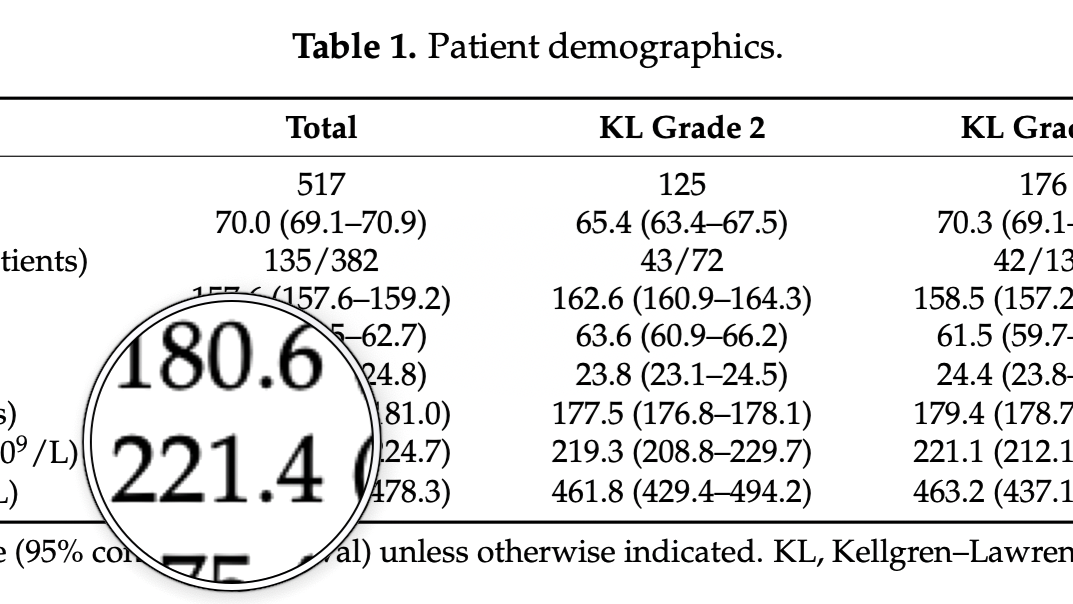Scientific and Critical Thinking is Not Optional — It’s Essential. Especially in Regenerative Medicine and Orthobiologics.
Scientific and Critical Thinking is Not Optional — It’s Essential. Especially in Regenerative Medicine and Orthobiologics.

Severiano Dos Anjos
July 25, 2025
A published retrospective cohort study published in 2021 explored predictors of response to platelet-rich plasma (PRP) therapy in 517 patients with knee osteoarthritis.
Their conclusion? Disease severity (KL grade) predicts response, while age, body weight, and platelet count do not affect efficacy.
📌 But here's the issue: none of these predictors were meaningfully variable in their cohort (you can check their own data).
· All patients received the same type of PRP, produced with same system (LP-PRP), yielding very narrow platelet concentration ranges (~475 ×10⁹/L).
· All were treated with the same protocol (3 injections, same volume, same device).
· BMI and age distributions were narrow, with little representation of extremes.
➡️ So, is it scientifically rigorous to say that platelet count, BMI or age don’t influence PRP outcomes in this population? Or is it more correct to say
"under these fixed conditions, no significant differences were detected"?
In a field where clinicians rely on published evidence to guide their decisions — particularly for PRP and other biologics — we must remain cautious. Scientific conclusions should reflect the actual experimental design and limitations.
Take home message: after reading the abstract and conclusions check methods and results in depth.
The study is available here:
https://doi.org/10.3390/jcm10194514
👇 What’s your take? Should journals and authors do more to highlight these nuances, especially in fields like orthobiologics, where protocols vary so widely in real life?
#PRP #Osteoarthritis #KneeOA #ClinicalResearch #RegenerativeMedicine #RealWorldData #CriticalThinking #ScientificIntegrity #Orthobiologics

